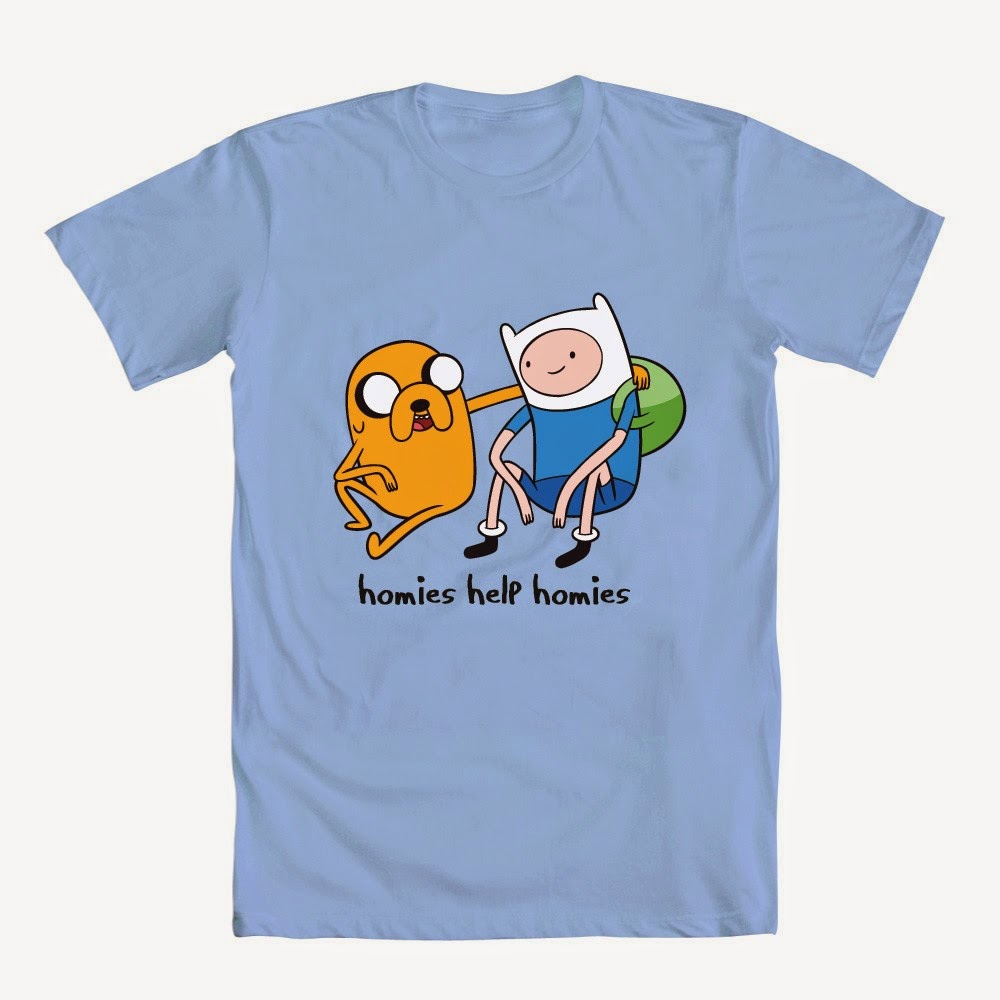For the past year or so, I've really enjoyed the show
Adventure Time. At first glance it seems like a wacky (very wacky) kids show. Eventually, after watching a few episodes, I found myself hooked and haven't strayed to another cartoon since.
Perhaps my enjoyment is generational (being a 90's kid and all) or perhaps the show transcends generational barriers. I truly don't know. All I know is that it's a truly enjoyable show filled with lessons about life, friendship and adventure.
Being one who enjoys software engineering, I will do my best to apply some of the themes found in
Adventure Time to common themes of software development. So, here goes...
In the above photo, take from the episode "Conquest of Cuteness," we see Jake burying "everything burrito" (a burrito containing, well, everything). This made me think. Sometimes, when we write code, we want to make a huge system to solve a small problem, we want to
use a crane to crush a fly.
Whether it's intentional or accidental, we have the best intentions. We know our abilities -- we can create truly amazing things. However, we need to keep the
YAGNI principle in mind. Many times, our extra functionality becomes, simply, superfluous. We end up building software that will never be used and we have to bury it, similarly to Jake burying everything burrito.
You Have to Fail Before You Can Succeed

The above meme-d line, "Sucking at something is the first step to becoming sorta good at something" rings absolutely true for software engineering (as well as many other disciplines, I am sure). In many ways, software engineering is all about learning! In order to stay up-to-date, we must learn new tools, technologies, languages, and we must do so continuously!
Sometimes learning new things can be daunting. We must realize, as Jake points out, that sucking is the first step to becoming awesome! We will all fail at first, but as we struggle and work, we will persevere and we will grown in knowledge and wisdom.
Homies Help Homies
As the above, tee-shirt quote says, "Homies help homies" (taken from the episode titled "Her Parents"). The idea of collaboration, of sharing wisdom and experience, is paramount for software development. As a newer developer, I can say that, through the wisdom of more senior developers, I have advanced at a rate beyond my ability to advance privately.
Lone-wolfing can be stunting. Through pair-programming, collaboration, mentoring and simply asking questions we benefit from the experiences of those who have seen more.
Programming Languages Are Like Jake's Favorite Cup
This is a pretty simple point: languages come and go. As developers, as stakeholders in an advancing industry, we need to be able to realize when a technology has expired. More importantly, we need to be able to move on and learn new technologies. There's nothing wrong with having a "favorite language" but, like Jake's cup, we need to be willing to drop it and learn something new, especially if our situation demands it.
Be Incremental
In the episode "Susan Strong," Finn and Jake meet Susan, one of many human-like beings that live underground. Upon bringing Susan to the world above, Finn recognizes that Susan is having trouble adjusting to her new environment. Finn decides to incrementally introduce the above-ground realm to Susan (this is when the above, modified Adventure Time logo is flashed).
This example of incremental exposure reminds me of two concepts that are important to developers, today. Firstly, when we learn new technologies, we should do so incrementally, so that we don't get overwhelmed. Secondly, when we develop software, it's helpful to do so incrementally. Incremental development is useful because it forces us to tackle small, bite-sized problems, resulting in bite-sized solutions that are more easily understood than complex, large solutions.






